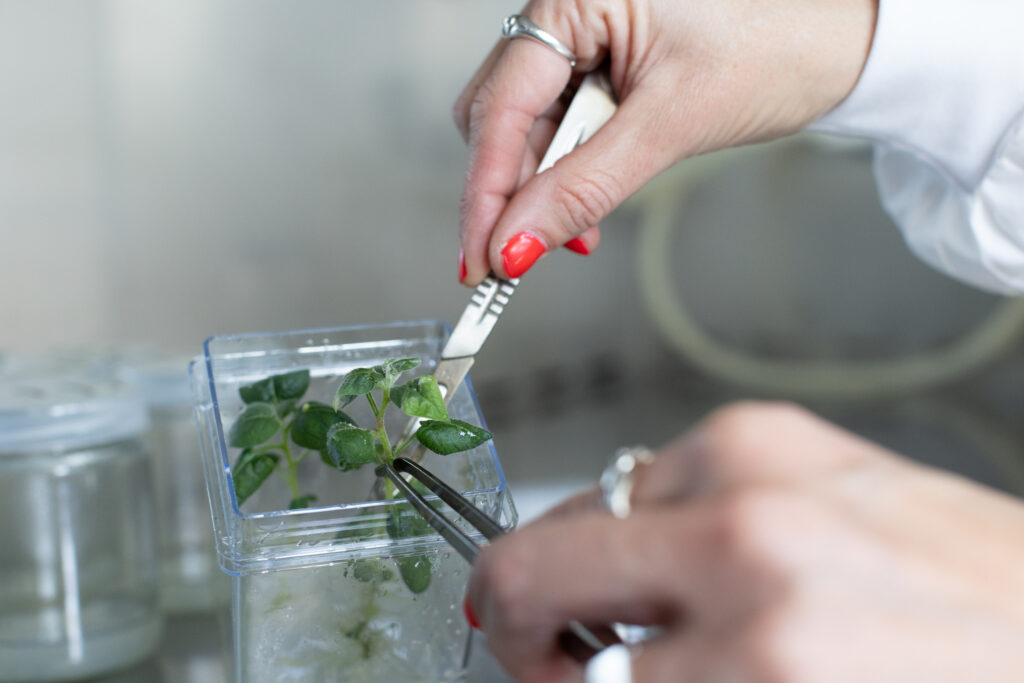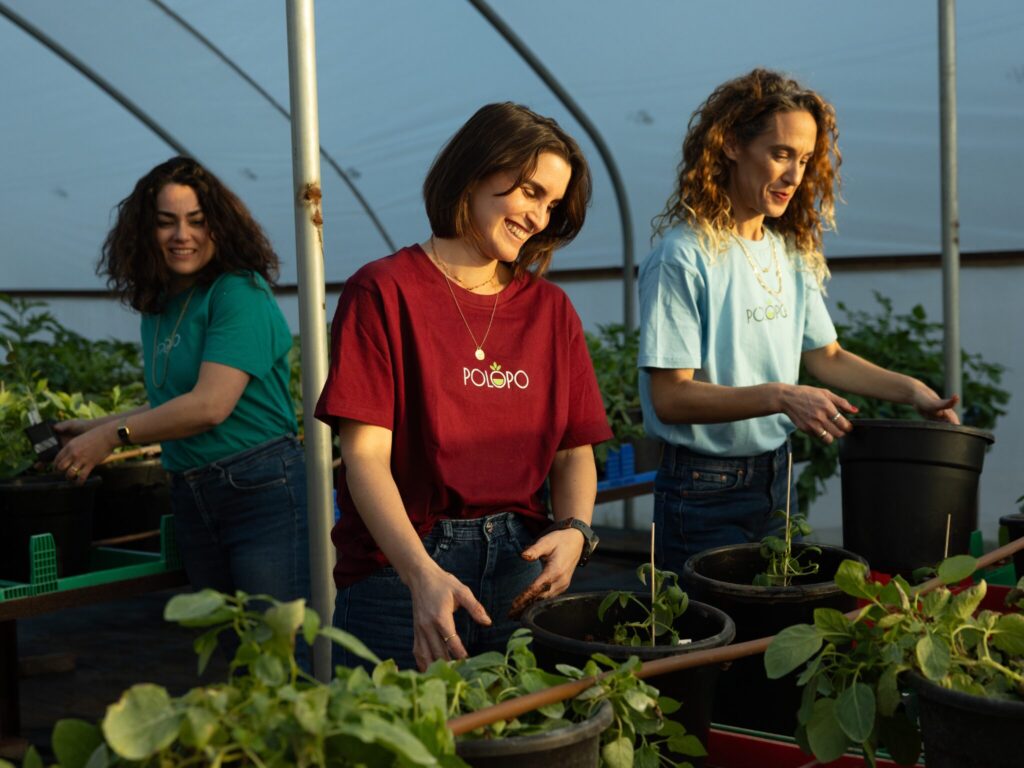Molecular Farming Startup PoLoPo to Supply Potato Protein Following Demand From Existing Clients
4 Mins Read
Israeli molecular farming player PoLoPo will now supply patatin after its egg protein clients expressed demand for the native potato protein.
PoLoPo, the Israel-based startup turning potatoes into protein factories, is now supplying patatin to clients, in response to an unexpected demand for the native potato protein.
The company uses molecular farming to grow target amino acids within a potato’s tuber through its SuperAA platform. While its first product is ovalbumin, the most abundant protein found in chicken eggs, its metabolic engineering techniques can also increase the potato’s own protein content.
And according to PoLoPo, commercial customers that have been buying its egg protein have also been asking for the latter, since the startup can produce patatin at much lower costs than current the current standard.
“We are keeping our eyes on the prize, which is bringing molecular-farmed egg protein to market, but conversations with clients revealed an additional demand for patatin in large quantities at a fair price,” said Maya Sapir-Mir, CEO of PoLoPo, which is awaiting regulatory approval from the US Department of Agriculture (USDA) before going to market.
Why PoLoPo’s patatin is unlike other potato proteins

Sapir-Mir co-founded PoLoPo with CTO Raya Liberman-Aloni in 2022. The team decided to begin with potatoes due to their resilience in diverse climates, low growth costs, short maturation time, relatively large storage capacity (in the form of tubers), high yields, and compatibility with existing technologies.
The company says it’s an efficient and sustainable ingredient that offers attractive financial opportunities for established agrifood producers, which will allow PoLoPo scale up its SuperAA system in a cost-effective manner.
For its ovalbumin, it inserts a DNA sequence into the potato to teach it to produce a fully functional, nutritionally equivalent protein that is chemically identical to chicken eggs.
But it can also produce a powdered version of patatin. It does so by drying and extracting proteins harvested from the tubers. The final product doesn’t have any GMOs, despite the process using genetic engineering.
The problem is, most manufacturers destroy native protein when extracting potato starch, so most patatin on the market is non-functional, and this usually ends up going to animal feed, pet food, cosmetics, and pharmaceuticals.
PoLoPo’s patatin, though, has a high protein digestibility score of 0.99 (the scale maxes out at 1), which is similar to that of casein, beef and eggs. It also has all essential amino acids and boasts functional attributes like emulsification, gelling and texturisation.
“Patatin has high nutritional value, is not considered as an allergen, and has great functionalities. By that, it is a versatile protein option for many categories: plant-based meat and dairy, baked goods, products like bars and drinks that are popular for sports nutrition or even meal replacement,” Sapir-Mir tells Green Queen.
PoLoPo bets on cost efficiency amid impending US approval

“We are scaling up our production to pilot scale in Israel for product and formulation development purposes,” reveals Sapir-Mir. “It’s important to remember that to scale, all we need is to plant another field.”
This is one of the key advantages of molecular farming: it doesn’t require expensive bioreactors to produce ingredients on a large scale. Here, the plants themselves act as the bioreactors. This also means lower prices – a key selling point for PoLoPo’s plunge into a $105M market for potato proteins.
Current prices of functional patatin can surpass $100 per kg, as extraction and drying with existing infrastructure is a resource-intensive process. But PoLoPo’s potato plants produce higher levels of patatin within potatoes, leading to better returns – both financially and in terms of yields. Combined with the protein’s functionality, this could help battle food insecurity in malnutrition-hit regions.
“Our SuperAA platform is significantly elevating the natural yield of patatin in potatoes, making potato processing for functional protein extraction more economical,” highlights Sapir-Mir. “This innovation unlocks pricing points that the industry has never seen before for functional patatin, offering more competitive pricing for high-quality protein.”
While she leaves the door open for fundraising (the company closed a $2.3M pre-seed investment round last year), PoLoPo is also now gearing up for launch in the US. It applied for USDA approval in May, and expects to get the nod by the end of the year.
“The submission to the USDA earlier this year is to cover growing our rich protein potatoes. We will file self-GRAS (Generally Recognized As Safe) for the patatin ingredient, and because it’s the natural protein growing in its natural environment, we expect a relatively smooth and quick approval,” Sapir-Mir explains.
PoLoPo is among a host of Israeli companies using molecular farming to grow future-friendly proteins. Finally Foods is also using potatoes, but to grow casein (the main protein in dairy) instead. NewMoo, meanwhile, is producing liquid casein from soybeans.
Alternative proteins are poised to present attractive benefits to Israel, with the industry expected to produce 10,000 additional jobs, have more than 200 companies and over a dozen manufacturing facilities, and contribute $2.5B to the country’s economy by 2030.



